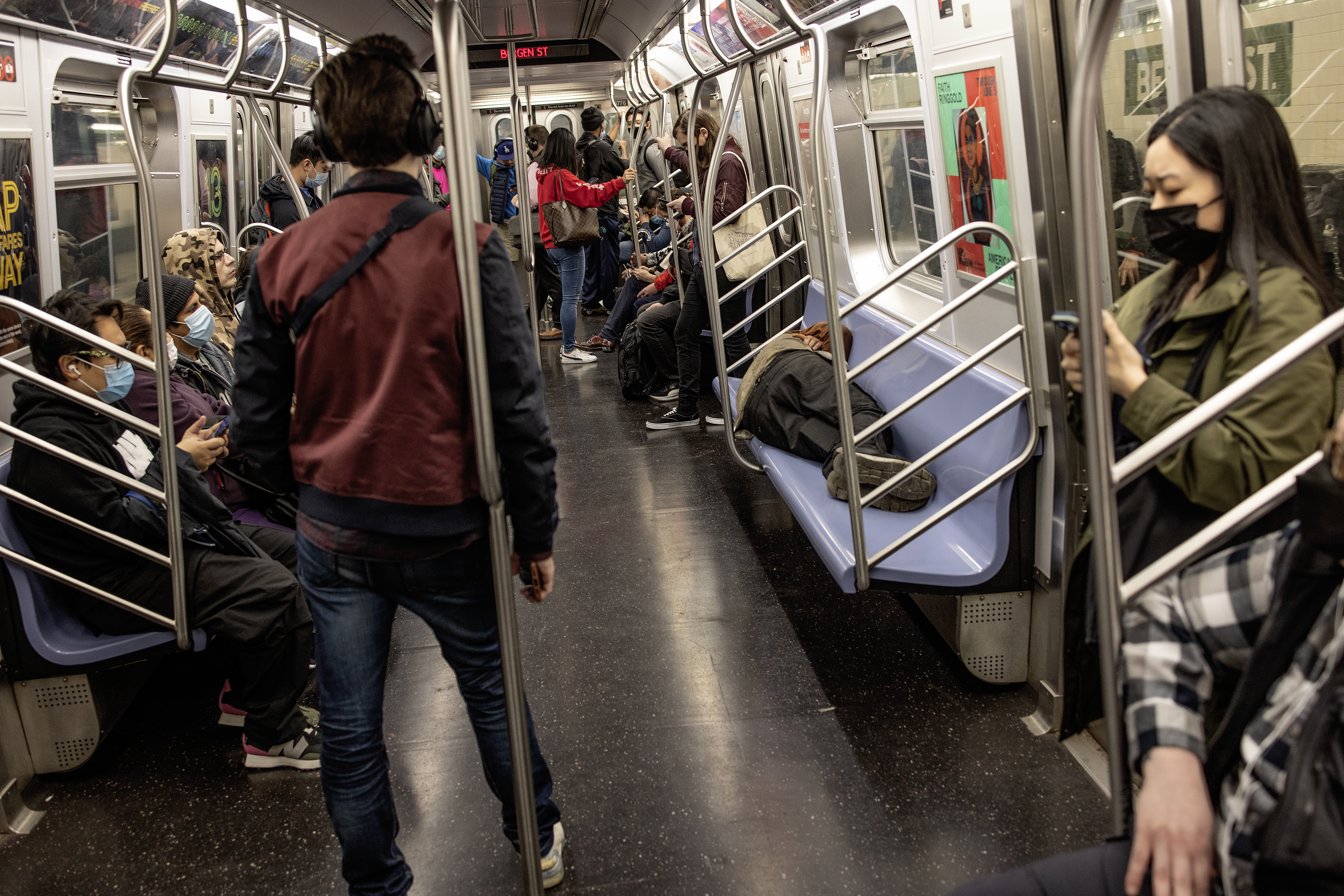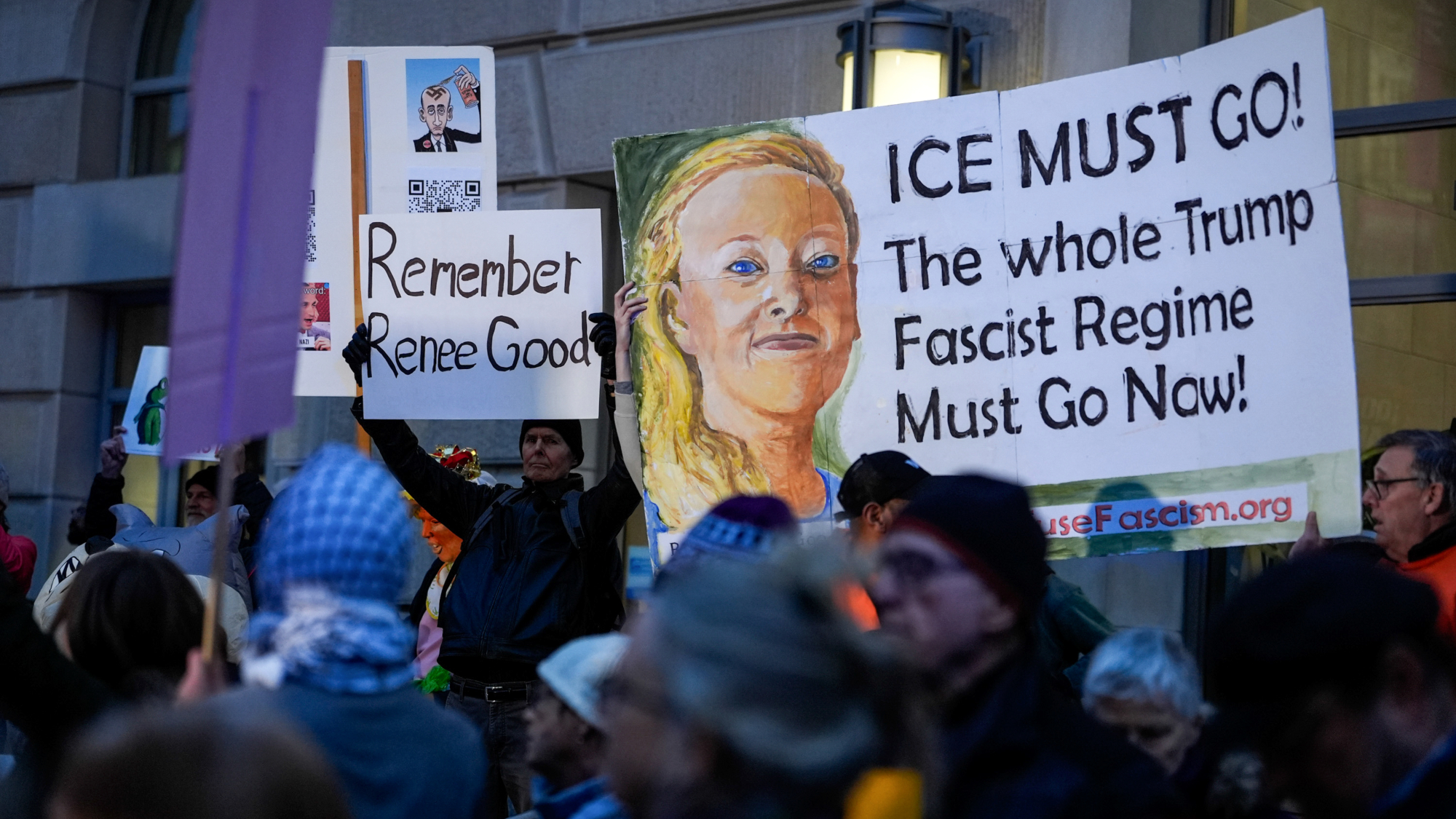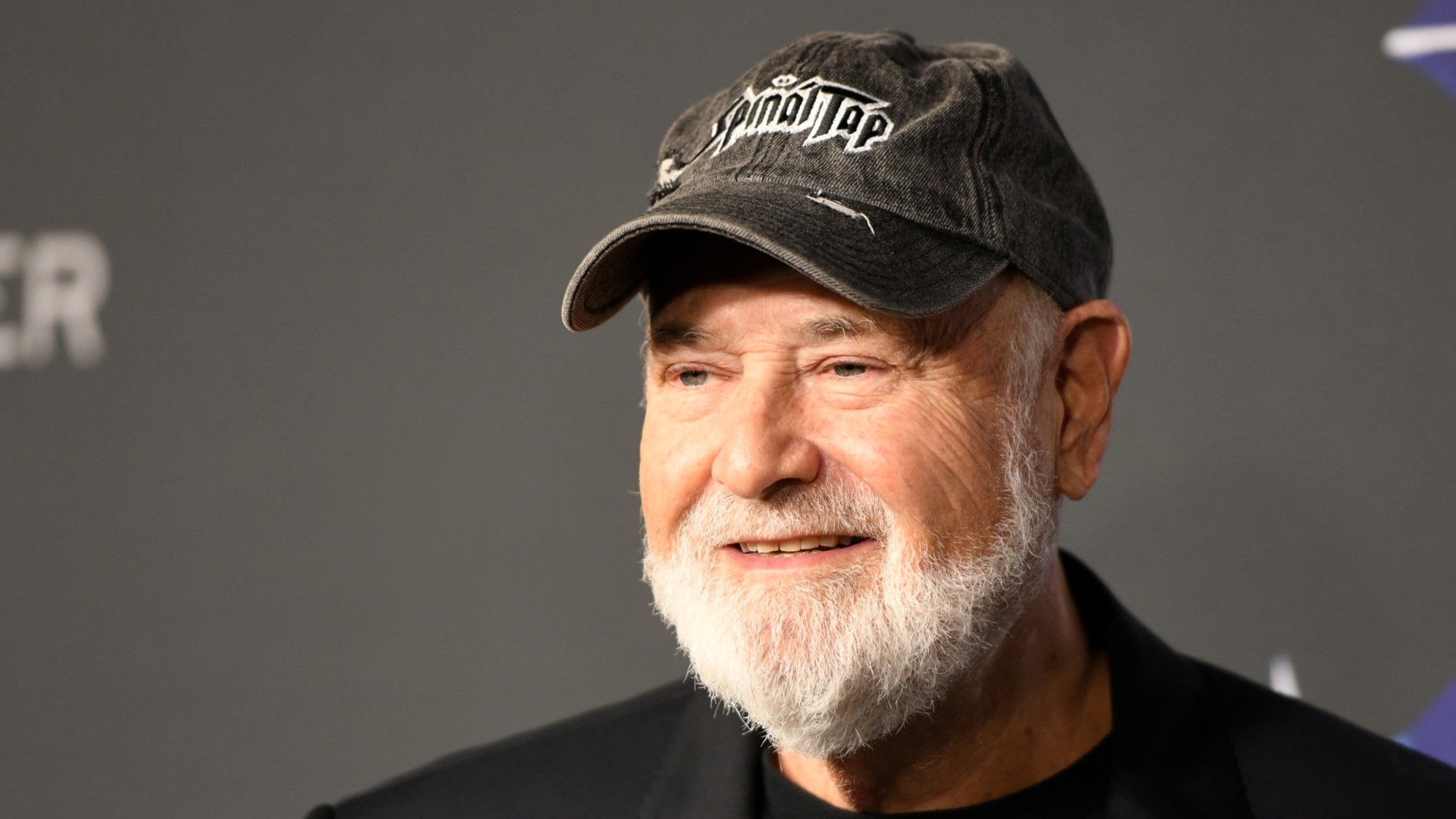Jordan Neely: Some see 'vigilante' choking as part of a historical pattern
The death of an unhoused New Yorker in the throes of an apparent mental health crisis has renewed questions about how communities treat their disadvantaged members


A free daily email with the biggest news stories of the day – and the best features from TheWeek.com
You are now subscribed
Your newsletter sign-up was successful
The killing of 30-year-old Jordan Neely by a man identified as 24-year-old Daniel Penny on a New York City subway has shocked and galvanized the public, as amateur footage of Neely's final moments spreads, showing him struggling for breath while held in a fatal chokehold on the train car floor.
Neely, a well-known local subway performer, was seemingly in the throes of a mental health crisis when he boarded a northbound F-train in Manhattan where, according to witnesses, he began screaming "I don't have food, I don't have a drink, I'm fed up."
"I don't mind going to jail and getting life in prison," Neely reportedly added. "I'm ready to die."
The Week
Escape your echo chamber. Get the facts behind the news, plus analysis from multiple perspectives.

Sign up for The Week's Free Newsletters
From our morning news briefing to a weekly Good News Newsletter, get the best of The Week delivered directly to your inbox.
From our morning news briefing to a weekly Good News Newsletter, get the best of The Week delivered directly to your inbox.
Speaking with The New York Times, freelance journalist Juan Alberto Vazquez described the situation as "very tense." Vazquez, who filmed the encounter, also noted that Neely hadn't physically attacked anybody when Penny — reportedly a former United States Marine — grabbed him by the neck and held him down with the assistance of at least one other passenger. "He wasn't conscious, he wasn't responsive, and the man still had him in the headlock," one witness told the New York Daily News, calling their struggle "very disturbing to watch."
Neely, who reportedly had a history of mental health challenges, was unhoused at the time of his death, and had been arrested dozens of times for various offenses, including public lewdness. "He should not have been on that train in the first place, he should have been housed," activist Krys Cerisier, with the advocacy and organizing group Vocal NY, told ABC 7. Penny was reportedly detained, questioned, and ultimately released from police custody without being charged, although District Attorney Alvin Bragg has said that an investigation into the incident is "ongoing."
"Because what people are constantly given is this narrative that homeless people are dangerous, people think they can take matters into their own hands and view a Black man being upset that he's hungry as a threat," Cerisier said.
'It wasn't acceptable then and it cannot be acceptable now'
Cerisier isn't alone in seeing Neely's killing — officially ruled a homicide by the New York City Chief Medical Examiner's office — as more than simply an isolated event. Rather, there is a growing chorus of critics and advocates who have placed the incident on a broader continuum of extrajudicial killings and racially influenced violence.
A free daily email with the biggest news stories of the day – and the best features from TheWeek.com
"Thirty years ago, I fought the Bernard Goetz case and we cannot end up back to a place where vigilantism is tolerable," civil rights leader Rev. Al Sharpton said in a press release calling for a criminal investigation into Neely's death. "It wasn't acceptable then and it cannot be acceptable now." In 1987, Goetz was acquitted of attempted murder after shooting four Black teenagers he alleged were attempting to rob him in a New York City subway car. At the time, Sharpton criticized Goetz's conviction on a simple illegal weapons charge, saying "If Bernie Goetz had been Black, he would have gotten much more than six months."
As The Washington Post's Philip Bump has noted, this comparison to previous instances of vigilantism can cut both ways — often along partisan lines: "When Fox News host Sean Hannity described the incident on his show Thursday night — framing Neely in terms that highlighted his purported danger — someone in the studio audience whooped with approval after a mention of the passenger's military record," he wrote in an essay expressly exploring the link between Goetz and Neely. Conservative broadcaster John Catsimatidis made his endorsement even more explicit, sharing a clip from the vigilante-approving 1974 film Death Wish, saying "If the police don't defend us, maybe we ought to do it ourselves."
In its coverage of the various responses to Neely's death, the New York Daily News placed the very method by which he was restrained and killed in the broader history of force used against unarmed Black men in the city, noting that "years ago, the NYPD banned cops from using chokeholds like the one seen in the video after outrage over the chokehold death of Eric Garner on Staten Island during a bungled arrest helped spark the Black Lives Matter movement." And writing in the Times, opinion contributor Roxane Gay made a slightly different historical connection, contextualizing Neely's death in terms of the recent instances of pubic violence instigated by "people who deem themselves judge, jury and executioner" acting without thought for the bigotry that "colors even the most innocuous interactions" and absent any "regard for due process."
Maurice Mitchell, national director of the progressive Working Families political party, framed Neely's death in the context of America's longstanding history of racial violence, calling it "a modern-day lynching" in a statement criticizing the responses from New York City Mayor Eric Adams, and Gov. Kathy Hochul (D).
Adams, in particular, has been targeted by many for his statement that focused on the "serious mental health issues in play here," seemingly blaming Neely's death on his own actions. "This honestly feels like a new low," Rep. Alexandria Ocasio-Cortez (D-N.Y.) tweeted in response to Adams' statement. "Not being able to clearly condemn a public murder because the victim was of a social status some would deem 'too low' to care about." New York City Comptroller Brad Lander struck a similarly combative tone against Adams, first decrying Neely's death as the work of a "vigilante" and then, after Adams criticized his use of the term as "irresponsible," tweeting the dictionary definition of the word.
In an essay for New York's Hell Gate, journalist Max Rivlin-Nadler struck a similarly adversarial tone against the existing balance of power that contributed to Neely's death, writing in a city "where millions are squeezed out of stability, the answer to who killed Jordan Neely isn't singular. The finger points right at the top."
As Bump stressed in his Washington Post essay, any comparison between Neely's death and Bernie Goetz's shootings is "imperfect but obvious." Not only when it comes to the details of each respective incident, but in how New York City — and the public at large — have already begun the process of historical contextualization as a means to explain, and in some cases justify, why a man died on the floor of a subway car, as people stood by and watched.
Rafi Schwartz has worked as a politics writer at The Week since 2022, where he covers elections, Congress and the White House. He was previously a contributing writer with Mic focusing largely on politics, a senior writer with Splinter News, a staff writer for Fusion's news lab, and the managing editor of Heeb Magazine, a Jewish life and culture publication. Rafi's work has appeared in Rolling Stone, GOOD and The Forward, among others.
-
 How the FCC’s ‘equal time’ rule works
How the FCC’s ‘equal time’ rule worksIn the Spotlight The law is at the heart of the Colbert-CBS conflict
-
 What is the endgame in the DHS shutdown?
What is the endgame in the DHS shutdown?Today’s Big Question Democrats want to rein in ICE’s immigration crackdown
-
 ‘Poor time management isn’t just an inconvenience’
‘Poor time management isn’t just an inconvenience’Instant Opinion Opinion, comment and editorials of the day
-
 ‘Poor time management isn’t just an inconvenience’
‘Poor time management isn’t just an inconvenience’Instant Opinion Opinion, comment and editorials of the day
-
 ‘No one is exempt from responsibility, and especially not elite sport circuits’
‘No one is exempt from responsibility, and especially not elite sport circuits’Instant Opinion Opinion, comment and editorials of the day
-
 Migrant death in ICE custody ruled homicide
Migrant death in ICE custody ruled homicideSpeed Read Geraldo Lunas Campos, 55, died of asphyxia, the coroner said
-
 Prosecutors quit as DOJ pushes probe of Good widow
Prosecutors quit as DOJ pushes probe of Good widowSpeed Read At least six prosecutors have resigned in Minnesota
-
 ‘Maps are the ideal metaphor for our models of what the world might be’
‘Maps are the ideal metaphor for our models of what the world might be’Instant Opinion Opinion, comment and editorials of the day
-
 Mamdani vows big changes as New York’s new mayor
Mamdani vows big changes as New York’s new mayorSpeed Read
-
 Inside Minnesota’s extensive fraud schemes
Inside Minnesota’s extensive fraud schemesThe Explainer The fraud allegedly goes back to the Covid-19 pandemic
-
 ‘It’s another clarifying moment in our age of moral collapse’
‘It’s another clarifying moment in our age of moral collapse’Instant Opinion Opinion, comment and editorials of the day
